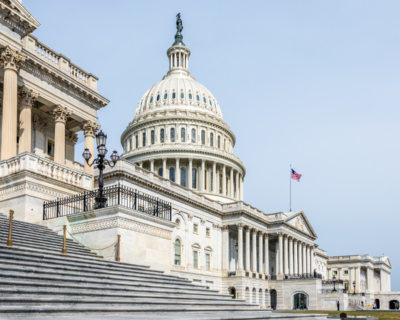
Breaking Up Big Tech: The Downside of Bipartisanship
When there is bipartisan agreement on an issue, great things can be accomplished. Just look at criminal justice reforms, which passed in Louisiana two years ago. Thanks to both sides of the aisle coming together, Louisiana’s streets will be safer, while taxpayers will save millions of dollars.
But, bipartisan agreement can also be incredibly dangerous. Take for example, the agreement of many on both the right and the left that something needs to be done about “big tech.”
Many on the right are concerned about “censorship” from companies like Facebook and Twitter. Conversely those on the left are increasingly concerned about the concentration of power from firms like Google and Amazon. This had led to proposals from presidential candidates that would break up large tech firms, lawsuits over censorship from media personalities, and suggestions from Senators to change the regulatory rules surrounding the internet.
Taking any of these measures would be a colossal mistake.
Foremost, all of these “big tech” companies that certain politicians love to bash are actually incredibly popular with the general public. While popularity isn’t everything, it does say a lot that the people being served by these companies, or buying their services, tend to be extremely happy with the deal they are getting. Most politicians can only wish they were as popular as the companies they are clamoring to break up.
Beyond destroying services that people love, it would be disastrous not only for the firms and the people they employ, but also for the tens of thousands of small businesses that rely on the Big Guys to make their businesses work. This includes businesses in Louisiana.
Companies like Amazon help users find products from thousands of small businesses across the country in one convenient place. Without Amazon, many of these businesses would have to rely on individuals stumbling across their website for the product they sell. Getting individual customers to their websites can be extremely expensive, but with Amazon, they have access to millions of customers instantly.
While Amazon also makes and sells some competing products, it’s little different than the “store brand” seen at many grocery stores. And as always, consumers have the final choice.
Similarly, companies like Google and Facebook have made it possible for small businesses to better advertise their products. How many hungry people can find a new local restaurant because of a quick Google search? How many restaurants can show off their new dish on their Facebook or Instagram page?
By breaking up these firms, the number of platforms and work small businesses will have to do to reach the same number of customers will increase dramatically. That isn’t a win for big business, small business or the consumers.
The Federal Trade Commission (FTC), which is in charge of investigating anti-trust matters, has long held a similar stance: breaking up companies for simply being big isn’t a good idea. The FTC relies on the “consumer welfare” standard when considering anti-trust action again a company. Essentially, if consumers are going to be hurt by a concentration of firms in an industry, the FTC will act. But, absent any consumer harm, businesses will be free to grow, as long as they are serving their customers of course.
This model has worked well for years, not only leading to many great technology jobs at large firms but also having these large firms serve both small businesses and consumers.
Politicians on both sides of the aisle should be wary of killing the goose that laid the golden egg. The people they represent are unlikely to be happy with the results.



